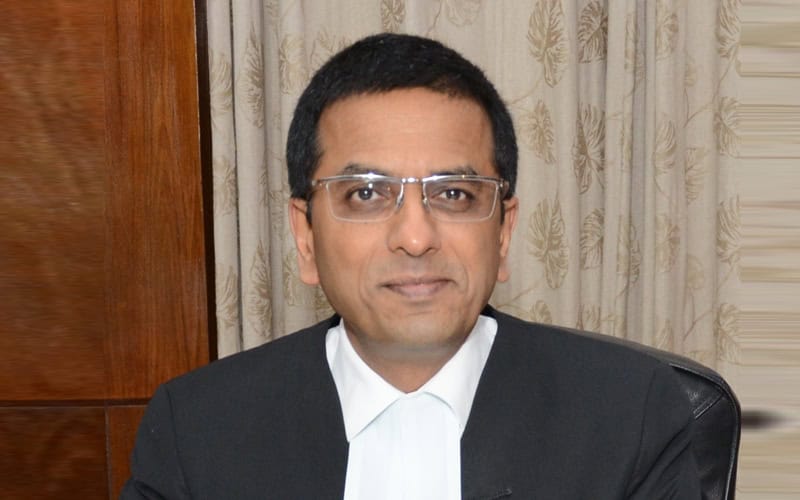NEW DELHI: Justice D.Y. Chandrachud, a member of the five-judge Supreme Court bench on Aadhaar issue, on Wednesday held that the Aadhaar Act cannot be treated as a money bill and passing it as one will be a fraud on the Constitution.
Holding that Rajya Sabha has an important role in the making of laws, Justice Chandrachud in his dissenting judgment said, “Superseding the authority of the Rajya Sabha is in conflict with the constitutional scheme and the legitimacy of democratic institutions. It constitutes a fraud on the Constitution.”
Passing of a Bill as a Money Bill, when it does not qualify for it, damages the delicate balance of bicameralism which is a part of the basic structure of the Constitution, said Justice Chandrachud.
Permitting the tabling of a bill as money bill when it is not so, Justice Chandrachud said would “constitute a subterfuge, something which a constitutional court cannot countenance.”
“Differences in a democratic polity have to be resolved by dialogue and accommodation. Differences with another constitutional institution cannot be resolved by the simple expedient of ignoring it”, Justice Chandrachud said.
“It may be politically expedient to do so. But it is constitutionally impermissible”, he said, adding: “This debasement of a democratic institution cannot be allowed to pass. Institutions are crucial to democracy. Debasing them can only cause a peril to democratic structures.”
Justice Chandrachud said the decision of the Lok Sabha Speaker on whether a bill can be treated as money bill can be subjected to judicial review.
The phrase in Article 110(3) of the Constitution says that the Speaker’s decision “shall be final” is subject to judicial review, Justice Chandrachud said. “The power of the Speaker cannot be exercised arbitrarily in violation of constitutional norms and values, as it damages the essence of federal bicameralism, which is a part of the basic structure of the Constitution.”
Justice Ashok Bhushan, agreeing with Justice Chandrachud, also held that the Aadhaar Act has wrongly been passed as a money bill.
“The Aadhaar Act, 2016 is not a money Bill. The Speaker of Lok Sabha wrongly certified the bill as a Money Bill under Article 110 of the Constitution of India virtually excluding the Rajya Sabha from legislative process and depriving the President of his power of return,” he added in his separate judgement.
“The Aadhaar bill being not a money bill and having been passed by Parliament as a money bill, this ground alone is sufficient to strike down the entire Act, 2016.”
Justice A.K. Sikri, reading the judgement also on behalf of Chief Justice Dipak Misra and Justice A.M. Khanwilkar, however, held that Aadhaar bill was “rightly introduced” as money bill.
“We are of the opinion that bill was rightly introduced as money bill. Accordingly, it is not necessary for us to deal with other contentions of the petitioners, namely, whether certification by the Speaker about the bill being money bill is subject to judicial review or not, whether a provision which does not relate to Money Bill is severable or not. We reiterate that main provision is a part of Money Bill and the other is only incidental and, therefore, covered by clause (g) of Article 110 of the Constitution,” said Justice Sikri.
[source_without_link]IANS[/source_without_link]

